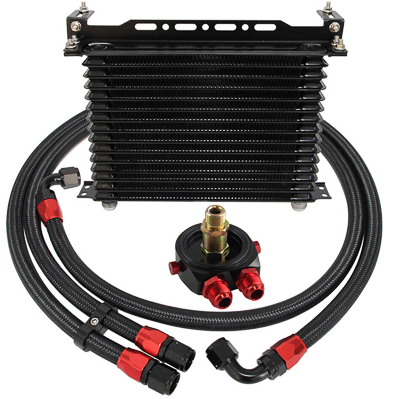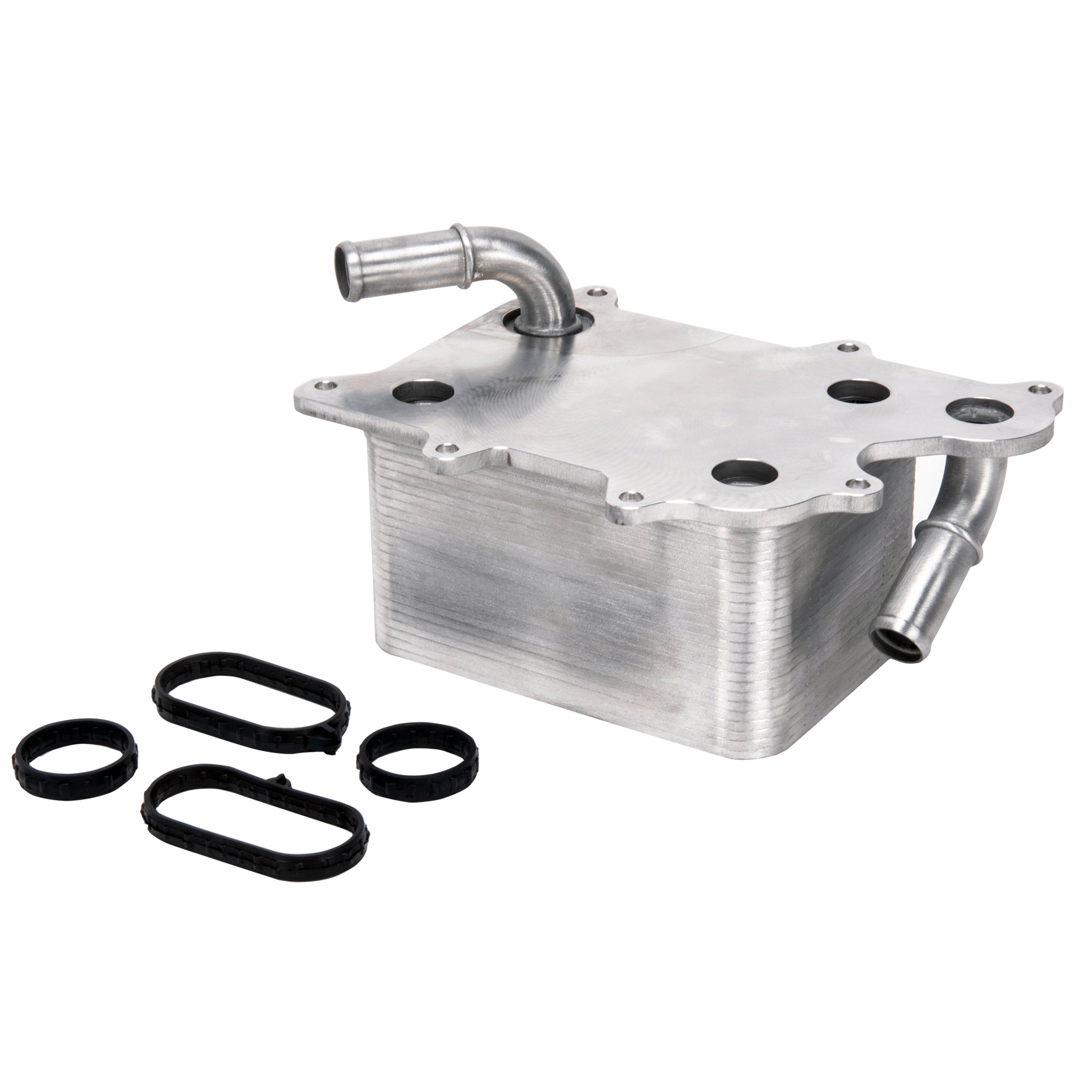Have you ever wondered why your car’s engine doesn’t overheat even after hours of driving? The secret lies in a small yet crucial component: the engine oil cooler.
If you’re like most drivers, you probably don’t spend much time thinking about what’s happening under the hood. But understanding the purpose of an engine oil cooler can make a big difference in how you maintain your vehicle and ensure its longevity.
Imagine this: every time you hit the road, your engine parts are working tirelessly, generating intense heat. Without proper cooling, this heat could cause serious damage to your engine, leading to costly repairs or even a complete breakdown. That’s where the engine oil cooler comes in, playing a vital role in keeping things running smoothly. By diving into the details of how an engine oil cooler functions and why it’s so important, you’ll gain insights that could save you money and headaches in the long run. Curious to learn more? Keep reading to discover the purpose of the engine oil cooler and how it can impact your driving experience.

Credit: www.ebay.com
Engine Oil Cooler Basics
Ever wondered what keeps your car’s engine running smoothly during a long drive? One crucial component is the engine oil cooler. Understanding its basics can help you appreciate its role in maintaining your vehicle’s performance. The engine oil cooler is a small but mighty device that ensures your engine oil stays at an optimal temperature, preventing overheating and potential damage.
Functionality Of Oil Coolers
Oil coolers play a pivotal role in regulating your engine’s temperature. They work by dissipating the heat generated by the engine oil. When your car is in motion, the engine oil absorbs a lot of heat. An oil cooler acts like a mini radiator, transferring this heat away from the oil, keeping it cool and effective.
Have you ever noticed your car’s engine light flickering after a long drive? That could be a sign of oil overheating. Without a functioning oil cooler, your engine oil can break down, leading to increased wear and tear. By keeping the oil temperature in check, oil coolers enhance your engine’s longevity.
Types Of Oil Coolers
Oil coolers come in various types, each suited to different needs and vehicle models. The most common type is the air-cooled oil cooler. It’s simple, using the air flow around your car to cool the oil. This type is often seen in everyday vehicles.
Another type is the liquid-cooled oil cooler, which uses coolant to lower the oil temperature. It’s more efficient but typically found in high-performance cars or heavy-duty trucks. Have you ever driven a sports car and felt the smoothness even at high speeds? Liquid-cooled oil coolers are part of that experience.
Understanding these basics can empower you to make informed decisions about your car maintenance. Next time you check under the hood, remember the unsung hero quietly keeping your engine in top shape. Have you ever considered upgrading your oil cooler for better performance? It’s a small change that can make a big difference. Keep an eye on your engine’s health and see what improvements you can make today!
Benefits Of Engine Oil Coolers
Engine oil coolers play a crucial role in maintaining optimal engine temperatures. They help keep the engine cool, ensuring it runs smoothly and efficiently. This section explores the benefits of engine oil coolers, focusing on enhanced performance and extended engine life.
Enhanced Engine Performance
Cooler oil helps the engine run more efficiently. It reduces the risk of overheating, which can affect performance. With an oil cooler, the engine stays at a stable temperature. This stability boosts performance, especially under heavy loads. It ensures the engine operates at its best, providing a smoother driving experience.
Extended Engine Life
Maintaining proper oil temperatures can prolong engine life. Excess heat can cause engine wear and tear. An oil cooler helps prevent this damage. It keeps the oil at a safe temperature, reducing stress on engine components. This protection can extend the engine’s lifespan significantly. By keeping the engine cool, it reduces maintenance costs over time.
Impact On Fuel Efficiency
Engine oil coolers play a crucial role in enhancing fuel efficiency. They help in maintaining the optimal temperature of the engine oil. This ensures that the engine runs smoothly and efficiently. When the engine operates efficiently, it uses less fuel. This results in reduced fuel consumption, which is beneficial for both the environment and your wallet.
Oil Coolers And Thermal Efficiency
Oil coolers improve an engine’s thermal efficiency. They help manage the heat generated by the engine. Excessive heat can decrease engine performance. By regulating the temperature, oil coolers prevent overheating. This allows the engine to operate under optimal conditions. A well-maintained engine ensures better thermal efficiency. It converts more energy from fuel into useful work.
Reducing Fuel Consumption
Oil coolers contribute to reducing fuel consumption. They maintain the engine at a stable temperature. A stable engine temperature improves combustion efficiency. This means that less fuel is wasted. Efficient combustion leads to lower fuel consumption. It also reduces harmful emissions. This makes vehicles more eco-friendly. Keeping fuel consumption low saves money on fuel costs. It also extends the lifespan of the engine.

Credit: www.pegasusautoracing.com
Oil Cooler Design Considerations
Engine oil coolers help maintain optimal temperature by reducing excess heat in the engine. This prevents overheating and ensures efficient performance. Effective cooling extends engine life and improves reliability.
Understanding the design considerations of an engine oil cooler is crucial for ensuring optimal performance and longevity of your vehicle’s engine. The oil cooler is a key component in maintaining the right temperature of the engine oil, preventing overheating and ensuring smooth operation. When thinking about the design of an oil cooler, several factors come into play, such as the materials used, the size, and its placement. Each of these elements plays a pivotal role in the effectiveness of the oil cooler.Material Choices
Selecting the right material for an oil cooler is essential for its durability and efficiency. Aluminum is often the top choice due to its excellent heat conductivity and lightweight properties. This makes it effective in dissipating heat quickly, ensuring your engine remains at the optimal temperature. Copper is another option, known for even better heat transfer abilities but at a higher cost and weight. The choice between aluminum and copper often boils down to budget and specific vehicle requirements. You might want to consider the environment your vehicle operates in, as different materials can react differently to varying conditions.Size And Placement
The size of the oil cooler directly affects its performance. A larger cooler can dissipate more heat, which is beneficial for high-performance engines. However, space constraints in your vehicle’s engine bay can limit the size you can choose. Placement is equally crucial. An oil cooler should be positioned where it can receive adequate airflow, such as behind the grille. Proper placement ensures efficient cooling, which can dramatically affect engine performance. Have you ever noticed how your vehicle performs differently in varying weather conditions? This can often be tied back to how effectively your oil cooler is working. Consider these design aspects carefully, as they will impact not only the efficiency of your oil cooler but also the overall health and performance of your engine. The right choices can extend the life of your engine and enhance your driving experience. Have you evaluated your vehicle’s cooling system lately? A little attention here can pay off in spades.Installation And Maintenance
Engine oil coolers play a vital role in vehicle performance. Proper installation and maintenance ensure their efficiency. These practices prolong the life of your engine.
Installation Tips
Choose the right oil cooler for your vehicle. Ensure compatibility with your engine type. Use proper tools for installation. Follow the manufacturer’s guidelines closely. Secure all fittings tightly to avoid leaks. Check the placement for optimal airflow.
Consider professional installation for best results. Experts ensure precise fitting and alignment. They verify connections and test for efficiency. Proper installation avoids costly damage later.
Regular Maintenance Practices
Inspect the oil cooler regularly for dirt and debris. Clean surfaces to maintain airflow. Check hoses and connections for signs of wear. Look for leaks and fix them promptly. Monitor oil levels and pressure routinely.
Schedule periodic checks with a mechanic. They detect issues before they escalate. Regular maintenance ensures consistent performance. Protect your engine from overheating risks.

Credit: bulletproofdiesel.com
Common Issues And Troubleshooting
Engine oil coolers play a vital role in maintaining engine health. They help to dissipate heat, ensuring the engine runs smoothly. But, like all components, they can face issues. Recognizing these problems early can prevent costly repairs. Let’s explore common issues and how to troubleshoot them.
Signs Of Oil Cooler Failure
Oil coolers can exhibit several warning signs. One common sign is engine overheating. This indicates the cooler may not be working efficiently. You might also notice oil leaks around the cooler. Leaks can cause reduced oil pressure. Another sign is the presence of coolant in the oil. This can lead to engine damage if ignored. Keep an eye on these signs to maintain engine performance.
Repair And Replacement Options
Once you identify oil cooler issues, you have options. Repair might involve fixing leaks or cleaning the cooler. If damage is severe, replacement could be necessary. It’s crucial to choose quality parts for replacements. Always consider professional help for accurate diagnosis. Proper maintenance ensures longevity of your engine oil cooler.
Conclusion
Engine oil coolers play a vital role in engine health. They manage the engine’s temperature, preventing overheating. This ensures the engine runs smoothly and lasts longer. Without proper cooling, engines can suffer damage. This leads to costly repairs. Regular maintenance of the oil cooler is crucial.
It helps avoid unnecessary breakdowns. So, always check your engine’s cooling system. This keeps your vehicle running efficiently and safely. Remember, a well-cooled engine is a happy engine. Proper care today saves you trouble tomorrow. Keep your engine cool, and it will serve you well.
